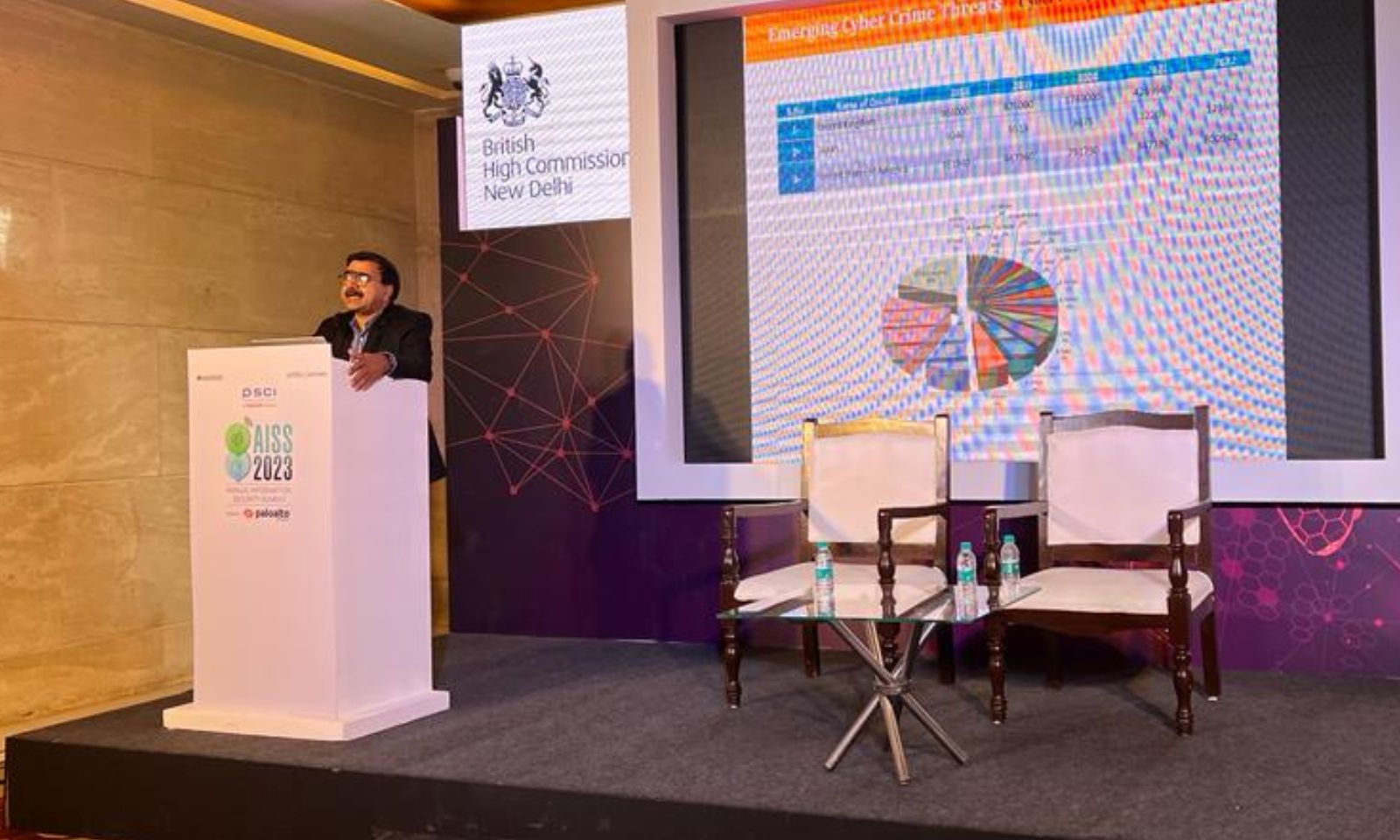Research & Opinion
Prof. Triveni Singh Unveils Revolutionary Cybercrime Management Framework at DSCI Event

GURGAON: In a wake-up call to the digital world, renowned cyber security expert Prof. Triveni Singh, former IPS officer, today unveiled a comprehensive framework to tackle the burgeoning cybercrime threat at a DSCI event in Gurgaon. His stark assessment painted a picture of a “fast-growing industry” with global losses exceeding $6 trillion in 2021 alone, urging immediate action to stay ahead of the curve.
ALSO READ: FutureCrime Summit 2024: Most Innovative Confluence of Cyber Crime Fighters
Prof. Singh’s keynote, “Emerging Cyber Crime Threats: Can We Stay Ahead?”, exposed the dark underbelly of the internet – the darkweb. This online haven for criminal activity, he revealed, operates as a thriving marketplace for stolen data, illegal hacking tools, and even bank accounts and SIM cards. Money laundering services and cyber weapons, he warned, are readily available, fueling a multi-trillion dollar criminal ecosystem.
To combat this dark side of the digital world, Prof. Singh presented his groundbreaking Indicative Cybercrime Management Framework. This eight-pronged approach encompasses every stage of the cybercrime lifecycle, from proactive prevention to effective prosecution.
ALSO READ: Registrations are now OPEN for the “FutureCrime Summit 2024”. Register Now!
CLICK HERE TO REGISTER
The framework emphasizes:
Governance: Strong leadership by agencies like CIS (MHA), Interpol, NCB, I4C, S4C, and District Cyber Police, facilitated by interconnected IT systems like Cyber CCTNS-JMIS and JCCT.
Identification: Proactive enforcement, information gathering and analysis, and intelligence gathering are crucial to nip threats in the bud.
Protection: CERT-In and NCIIPC play a vital role in shielding critical infrastructure through Information Security Management Systems (ISMS).
Detection: Threat intelligence, darkweb monitoring, Security Operations Centers (SOCs), and complaints on NCRP/CCTNS are essential for early warning.
Response: Digital forensics and incident response (DFIR) capabilities, coupled with breach notification guidelines by CERT-In, are critical for swift damage control.
Recovery: E-discovery and robust backup systems ensure business continuity in the face of attacks.
Investigation: Following legal procedures for search and seizure, meticulous case file preparation, asset forfeiture, and specialized investigation techniques are key to gathering evidence and bringing perpetrators to justice.
Prosecution: Awareness training for prosecutors and judges, combined with judicial awareness and focus on conviction rates, are vital for effective punishment and deterrence.
Prof. Singh’s framework resonated strongly with the audience, comprising cyber security professionals, law enforcement officials, and industry leaders.
Prof. Triveni Singh’s Indicative Cybercrime Management Framework offers a valuable roadmap, a comprehensive blueprint to navigate the treacherous digital landscape and protect ourselves from the ever-growing shadow of cybercrime.

